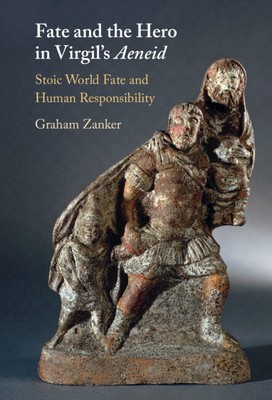
- We will send in 10–14 business days.
- Author: Graham Zanker
- Publisher: Cambridge University Press
- ISBN-10: 1009319876
- ISBN-13: 9781009319874
- Format: 15.2 x 22.9 x 1.8 cm, hardcover
- Language: English
- SAVE -10% with code: EXTRA
Reviews
Description
This book explores how Virgil in his Aeneid incorporates the ancient Stoics' thinking about how humans can exercise moral responsibility and how this can affect providential world fate. The third-century BC philosopher Chrysippus of Soli located this freedom in the way we can assent to courses of action, and Graham Zanker innovatively demonstrates how Virgil appropriates this concept in the way that Jupiter and Aeneas can assent to the world fate in which they have discovered they must play a part, or Juno and Dido can withhold their assent to it. Indeed, Virgil even offers the model to no-one less than Augustus: the emperor is invited to give his assent to ruling what was believed to be his 'world-wide' empire justly. The book is accessible to both students and professional scholars of the Aeneid, with all Greek and Latin translated into idiomatic English.
EXTRA 10 % discount with code: EXTRA
The promotion ends in 8d.03:25:57
The discount code is valid when purchasing from 10 €. Discounts do not stack.
- Author: Graham Zanker
- Publisher: Cambridge University Press
- ISBN-10: 1009319876
- ISBN-13: 9781009319874
- Format: 15.2 x 22.9 x 1.8 cm, hardcover
- Language: English English
This book explores how Virgil in his Aeneid incorporates the ancient Stoics' thinking about how humans can exercise moral responsibility and how this can affect providential world fate. The third-century BC philosopher Chrysippus of Soli located this freedom in the way we can assent to courses of action, and Graham Zanker innovatively demonstrates how Virgil appropriates this concept in the way that Jupiter and Aeneas can assent to the world fate in which they have discovered they must play a part, or Juno and Dido can withhold their assent to it. Indeed, Virgil even offers the model to no-one less than Augustus: the emperor is invited to give his assent to ruling what was believed to be his 'world-wide' empire justly. The book is accessible to both students and professional scholars of the Aeneid, with all Greek and Latin translated into idiomatic English.


Reviews